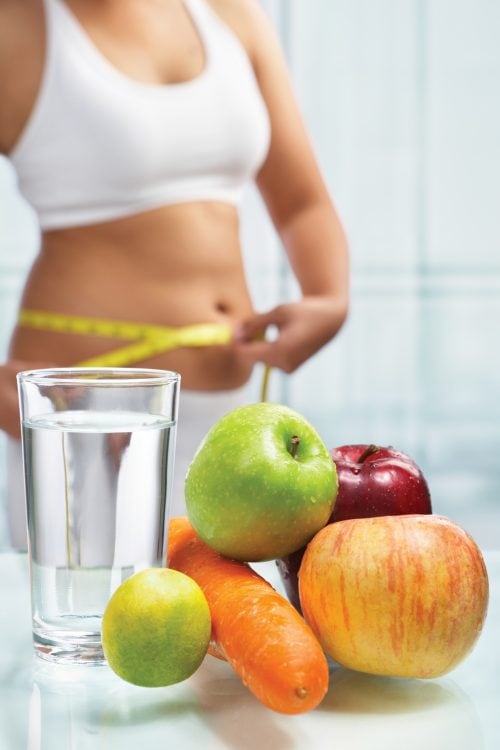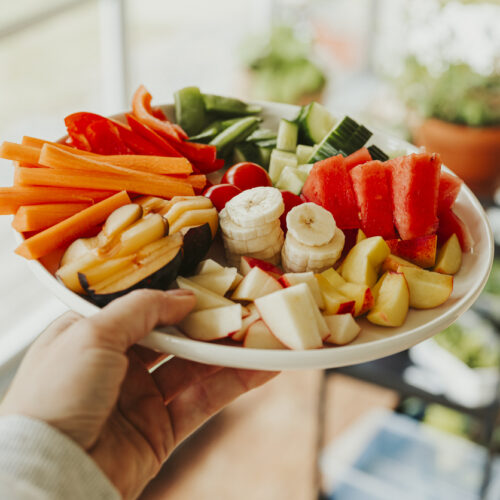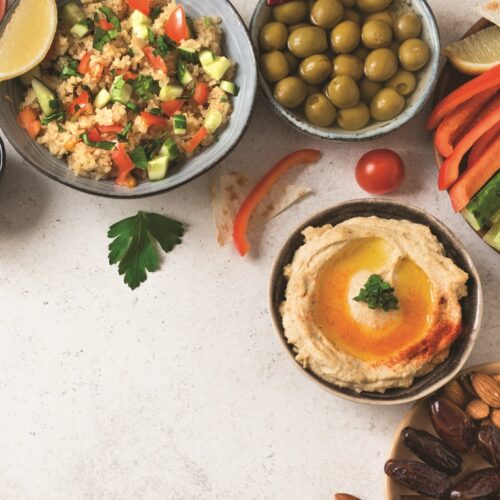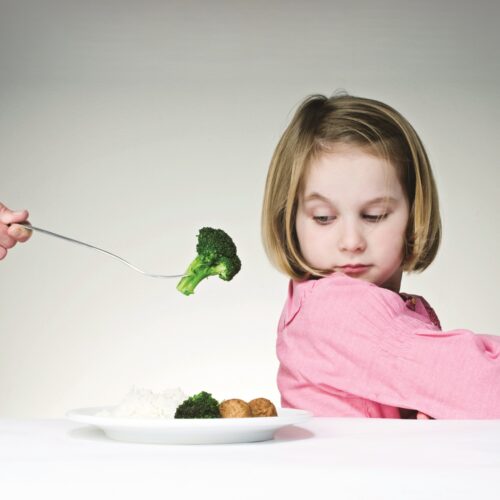
We asked you, our readers, to send in those nagging weight-loss questions then posed them to our expert panel. Read on for helpful strategies and support
Our experts
- Rose Carr: HFG senior nutritionist
- Claire Turnbull: HFG nutritionist and author of Lose Weight for Life and Feel Good for Life
- Susan Maiava PhD: HFG weight-loss blogger and author of Fat Chance! The No-Going-Back Weightloss Workbook
Your questions
“How come some people are able to stay ‘lean and mean’ without much effort, but others like me are always having to diet and exercise?”
Our size and shape depends partly on our genetic make-up. Some people just naturally have longer limbs and are more muscular than others. Men have an advantage over women as they naturally carry more muscle.
Ageing also has an impact, says HFG senior nutritionist Rose Carr. “As we get older, our muscle mass naturally declines and our fat mass increases. This means the number of kilojoules we burn at rest will go down so over time we need to slightly modify our food intake to account for that.”
It’s possible that years of yo-yo dieting could also have an impact on metabolic responses but this is still an unknown.
The reality is some people will be leaner than others. So we need to accept who we are and make the most of it. “Having said that,” says Rose, “there are things you can do to be a leaner and meaner you. The more muscle we have, the more energy we burn even at rest.” So tone those muscles with some resistance training. “And any extra activity we do will burn more energy: so think about creating opportunities to move more, whether it’s doing a new gym class or using the stairs rather than the lift each day,” says Rose.
“My weight fluctuates as much as up to 2kg, in one day! Why does this happen?”
“Our weight naturally varies throughout the day. We add to our weight by eating and drinking, and then dispose of metabolic waste products by sweating, defecating and passing urine,” says Rose. Add to that potentially inaccurate bathroom scales and there is a good case not to weigh ourselves too often – and certainly not at different times in one day.
Women who experience cyclical fluid retention also need to take that into account when deciding if and when to weigh themselves. Instead of relying on the scales, it may be better to measure your waist (at the narrowest point above your hips), or even just monitor the varying tightness of a pair of jeans. The best way to lose weight is slowly, so however you measure the change, don’t do it too often.
“If you want to use scales to measure your weight loss, stick to a weekly weigh-in at the most and remember there will still be natural variations,” says Rose.
“I’ve reached a weight-loss plateau. What now?”
Reaching a weight-loss plateau can be extremely frustrating. It can happen for a variety of different reasons. The solution will vary depending on the actual cause of the plateau. HFG nutritionist Claire Turnbull suggests some things for you to look into…
- Time to recheck your portion sizes and what you are actually eating. Over time it can be very easy for portion sizes to creep up. “Keep a food diary for a week or so and just check what you are actually eating,” says Claire. “You could be having extras without realising.”
- Make small changes throughout the day. It might be having slightly less cereal, thinner sliced bread, 1/2 cup rice instead of 3/4 cup and so on. “Little changes add up,” says Claire.
- Change things up. “Sometimes, changing the variety of foods you are eating and mixing up your exercise training can make all the difference,” says Claire. Your body adapts to the same exercise so you need to be sure you are always trying to progress to the next level: up your weights a little, increase the workout intensity or try something new to push yourself a little harder.
- Other things to consider. How well are you sleeping? Are you stressed? Are you living on coffee or other stimulants? “These factors may all play a part,” says Claire. “You will need to address things from a holistic point of view. It might not just be about eating less but looking after yourself better overall.”
“What can we do to counter the ‘hormone’ changes that hit women during menopause and subsequent increase in body fat?”
As you get older your body composition changes: muscle mass declines and your fat mass is likely to increase.
Combined with hormonal changes at the time of menopause, this can be a recipe for extra fat being added to your body. There are several things Claire suggests you can do to counteract this.
- Watch your portion sizes. “Even if you eat great healthy food, it can be easy to eat more than you now need,” says Claire.
- Up your fibre intake. Fibre helps you feel fuller for longer as well as helping keep things flowing ‘through you’ nicely. “Be sure you are having three-plus handfuls of non-starchy vegetables each day and try including more pulses such as chickpeas, lentils and kidney beans,” says Claire. You could also add one tablespoon of ground seeds (such as LSA) to your cereal in the morning or to a smoothie.
- Build up your muscle mass and reduce your fat mass so that you are able to burn more kJ even at rest and ‘boost’ your metabolism. “Look to include some weight-bearing exercise as well as cardiovascular exercise and some stretching,” says Claire.
“Why am I having problems losing the excess weight off my stomach since having a baby, even though I exercise a lot?”
Healthy-weight women are encouraged to gain up to 16kg during pregnancy as this is essential for the nourishment and growth of the foetus. This weight includes the weight of the placenta and amniotic fluid, additional fat stores needed during pregnancy, the baby at full-term weight, and milk-laden breasts.
“Despite what women’s magazines and celebrities may tell us, after giving birth, it’s entirely normal that getting back to your pre-pregnancy weight could take up to 12 months,” says Rose.
In order to gain weight during pregnancy you needed to consume more (albeit healthy) food. To lose the excess weight a combination of reducing food intake and regular physical exercise is ideal. Exercises to strengthen your abdominal muscles are a great idea but don’t think of this as ‘targeted weight- loss’. “Changes in your diet and aerobic exercise will help lose weight from your stomach although it is possible weight may be distributed slightly differently after having children,” says Rose.
Breastfeeding uses around 2000kJ each day, so it’s not surprising this is associated with weight-loss.
“Once you stop breastfeeding,” says Rose, “you’ll need to adjust your portion sizes and eating patterns again.”
Another factor affecting mothers’ weight retention is a lack of sleep, which is incredibly unfair! So any strategies to get enough sleep will help not only your mental state but also your weight-loss efforts.
“You reach your goal weight but then your body doesn’t always accept it, adding at least 5kg back on. Why?”
Your weight naturally goes up and down, day-to-day, depending on what you have eaten, the ‘time of the month’ and how well hydrated you are. So it’s unlikely you’ll be able to stay at your specific weight goal all the time.
“If you have been quite restrictive to get to a goal weight, returning to a more relaxed way of eating can see weight creep back on,” says Claire. “One of the most common things I see is when someone has restricted their carbohydrate as part of their weight-loss strategy. There will be fat loss, however when you are carbohydrate-depleted you also store less water so on the scales, you appear to ‘weigh’ less. Then, a few weeks after you’ve reached your goal weight, you relax a little, eat a bit more starch (albeit healthy types) and some of the weight is back again. This isn’t necessarily fat you have gained, just water storage”.
Claire doesn’t think it’s helpful to make a weight-loss goal based on a number of kilos. “It’s better to think about how you feel and focus on improving your ability to do things and increasing your level of self-confidence,” she says. “Scales create a process of self-judgement which can be really unhelpful. The way you eat and exercise at your goal weight needs to be sustainable for the rest of your life for you to be able to stay there.”
You may want to consider getting individualised nutrition advice to work out what is going on for you and why your weight gain happens as the answer will be different for everyone.
“For weight loss, is there an ‘ideal’ carbs:protein ratio? Or can I only eat veges?”
We’ve always known that having protein throughout the day is helpful for weight-loss as it makes us feel fuller than carbohydrates do. Now, the ‘protein leverage theory’, suggests if we’re eating a diet low in protein (say less than 15 per cent energy from protein), we tend to keep eating until we’ve had enough protein. So we’re much more likely to overeat and gain weight in the process.
“Scientists are finding that if we get around 25 per cent of our energy (kJ) from protein, we are less likely to overeat. In a 6000kJ weight-loss diet, that’s around 90g protein and in an 8700kJ day, around 130g protein,” says Rose.
Each of our weekly menu plans in the HFG October 13 Weight-loss Toolkit booklet have around 25 per cent of kilojoules from protein. To do this we include foods which contain protein at each meal and in snacks.
“The amount of carbohydrate you need will depend on your lifestyle and how active you are,” says Rose. “There is no specific ideal.” For weight-loss trimming the portion size on carbs is a good idea.
Think of starchy vegetables such as potatoes and kumara as a carbohydrate. For low-energy veges, more is definitely better.
“Is eating your biggest meal at night a bad idea?”
”How much and when we need to eat is influenced by how active we are during the day. If you’re active in the morning and a couch potato at night, a larger meal in the morning rather than at night is ideal,” says Rose.
Our daily energy (kJ) usage is made up of three parts: our resting metabolic rate, the energy cost of physical activity and the thermic effect of food (how much energy is burned processing the food eaten).
“It’s not exactly true that all kilojoules are equal,” says Rose. “The thermic effect of food is greater for protein than other nutrients. It also appears to be higher in the morning and declines during the day.”
Eating the same meal in the morning is therefore thought to burn more kilojoules than it would if eaten at night.
A larger evening meal is often a default as we tend to have more time to prepare this meal. Rose says, however, if we watch portion sizes, and make enough for the next day’s lunch, it is easier to spread out the kilojoules more evenly.
“Why is it so hard for people with type 2 diabetes to lose weight?”
The carbohydrates in food such as bread, cereal, pasta, starchy vegetables and fruit are all broken down by the body into sugar (glucose). These foods, along with things like cakes, biscuits, sweets and sugary drinks will all end up as sugar in your blood.
“As your body likes to keep your blood sugar levels within a healthy range, it makes a couple of hormones to help manage this process,” says Claire. One of these hormones is called insulin and this helps remove sugar from the blood and make sure it is transported around the body.
For those who have type 2 diabetes, this process doesn’t happen properly for one of two main reasons. “It could be your body is unable to make enough insulin to cope with the amount of carbohydrate you are eating and as a result, too much sugar ends up staying in your blood,” says Claire. “More commonly, however, those with type 2 diabetes do make enough insulin. In fact, they make lots and lots of insulin, but their body just doesn’t respond to it. This is called insulin resistance and is common in those who are overweight.”
With insulin resistance, not only can your blood sugar end up being too high much of the time because the insulin isn’t really working as it should, but also, when you have heaps of insulin floating round your body, it can promote fat storage and make it difficult to lose weight. And this can become a vicious cycle.
So, what can you do?
“Manage the amount of carbohydrate you are having at each meal,” says Claire. It might be a good idea to see a dietitian for personal advice on this. “Be sure you aren’t having lots of high-sugar foods or drinks, and be more active every day, as this helps your body to respond better to insulin.”
“My motivation to lose weight only lasts for six weeks. Why? How can it last longer?”
The mind-set we have when we try to lose weight makes a difference to our level of motivation. “If we set out with the intention ‘to diet’, it is difficult and restricting as when we recall the pleasure of overeating and the needs it met, the temptation to break the diet can be strong,” says Susan Maiva, HFG weight-loss blogger and author of Fat Chance! The No-Going-Back Weightloss Workbook. “If instead, we set out to change our lifestyle, we can experience a much more enjoyable process and greater sense of satisfaction.”
Why do people want to lose weight in the first place? “Often the tipping point is when the pain of staying the same becomes greater than the pain of changing,” says Susan. What matters, then, is how we perceive our new life compared to our old life, the advantages and disadvantages of each. “When the advantages of your new life outweigh the old, you will be motivated to continue: remember the pain of being overweight and all the things you couldn’t do before. Starting a new lifestyle should bring pleasure rather than discomfort, so focus on deliberately enjoying your new life (including enjoying tasty, healthy foods) and what you can now achieve,” says Susan.
“Can prescribed medication cause problems with weight gain?”
Certain medications can have weight gain as a side effect. These medications include steroids, some contraceptive medications, insulin and various drugs for psychological health issues.
“Side effects of drugs can vary hugely — so talk to your GP or pharmacist if you feel your medication may be adversely affecting your weight. There may be an alternative medication available,” says Claire.
If there isn’t, sadly, it may be something you need to accept, and then look to make other adjustments to better manage your weight. This will include looking at how you eat, your activity as well as your sleep, and stress management.
“I lost a lot of weight through healthy eating and now I’ve become too focused on this. How do I stay slim but enjoy life?”
“Staying slim and enjoying life are not mutually exclusive but two sides of the same coin”. Susan says.
“Perhaps you have lost and regained weight before and are scared of doing so again,” she says. “Or perhaps you see healthy eating as restrictive and requiring effort, rather than liberating.”
Susan says a new way of looking at this may be to ask yourself ‘What is my definition of enjoying life?’ If it is still overindulging on chocolate cake and fizzy drinks with abandon, you need to find new ways of enjoying your new healthy lifestyle and the person you have become.
“Small ‘treats’ are fine. No-one said you can’t ever eat chocolate again,” says Susan. “But joy is to be found in many aspects of life.” Search these out, now you have a greater ability to do so.
“Create a new definition of enjoying life,” says Susan. “What did you always say you would do when you were slim?”
Congratulate yourself and give yourself permission to enjoy life in all its dimensions.
www.healthyfood.com










